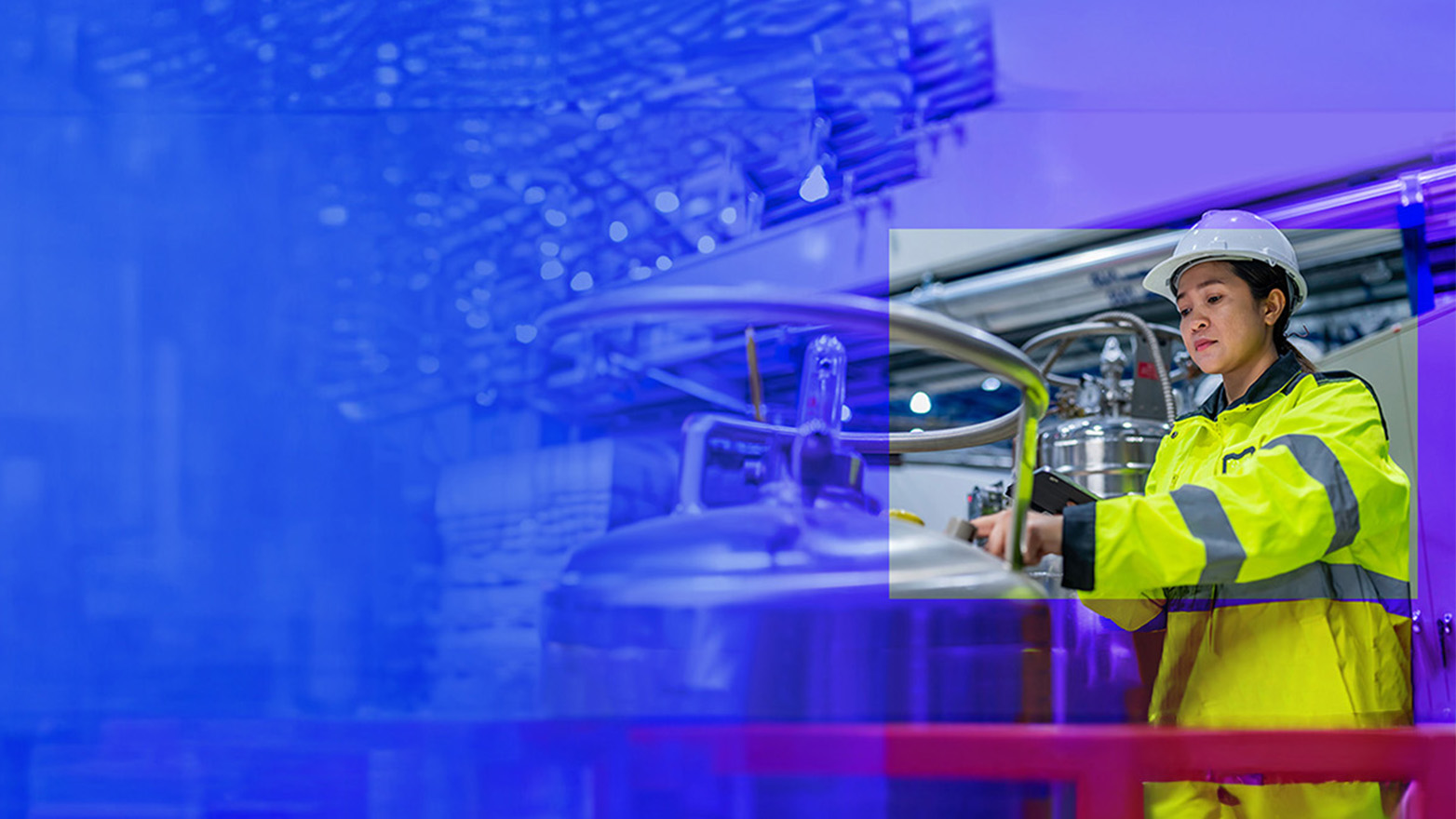Proving environmental performance in natural gas markets
If you want to make your 2050 energy transition goals, you need to be able to measure your progress.

By: Matt Berchtold, Chief Product Officer, Context Labs; Pravin Chandra, KPMG in the US; Brooke Harris, Director, ESG – Energy Transition, KPMG in the US; Mark McDivitt, Chief Operating Officer, Context Labs
The complexity of scaling renewables and geo-political shifts over the last few years has broadened the support for including natural gas as part of energy transition plans. Perhaps nothing highlights this better than the EU’s decision to conditionally include natural gas as an eligible activity in the EU Taxonomy.1 As a result, downstream buyers, governments and even investors are looking for energy companies to reduce the methane emissions associated with natural gas across the full value chain. And those energy companies that are able to deliver, have the potential to benefit, whether it be through higher revenues or increased market access. Accordingly, some natural gas producers and mid-stream operators are looking to measure, quantify and prove the carbon intensity of their products and activities.
One problem is that there are currently no standardized tools for measuring and reporting on the carbon intensity of an MMBtu of oil or gas from a particular asset. Some frameworks are emerging for methane emission intensity such as the UN’s Oil & Gas Methane Partnership (OGMP) 2.02 and the GTI Veritas Protocols.3 For the most part, however, carbon intensity is estimated using company-reported data and general industry benchmarks.
Better estimates are needed
Depending on what natural gas companies are trying to achieve, industry benchmarks may be adequate. If the goal is to conduct some internal measurement to inform decision-making and portfolio diversification for the energy transition, producers can use EPA or local estimates. These estimates can be general and qualitative in nature, providing simple benchmarks to work from.
However, if the goal is to provide quantifiable reporting to key stakeholders, producers will likely need something more rigorous. Whether warranted or not, public perception of Oil and Gas companies continues to be sub-optimal, and this creates a need for real-world data that is actionable, aligned with claims being made by a company and is perceived as objective and reliable. And this is where another challenge presents itself – while there are growing number of data sources (satellites, continuous monitoring systems, etc.), yet they all face certain limitations whether it be resolution, coverage and/or cost. As a result, there is a need for solutions and standards that go beyond methane emissions tracking and reporting and provide ability to track and certify CO2 emissions, measure end-to-end emissions, and demonstrate compliance with protocols such as OGMP 2.0 and GTI Veritas.
Confidence through trust
This is where KPMG firms have been able to step in.
KPMG in the US has formed a strategic alliance with Context Labs a leading enterprise data fabric-based climate analytics company based in Cambridge, MA and Amsterdam, NL dedicated to sourcing, organizing, and contextualizing the world’s climate information.
Together, Context Labs and KPMG in the US are helping Williams, a major US mid-stream gas company, to quantify the carbon intensity and energy efficiency of their pipelines and over 700 compression, treating and processing facilities across the countries. Context Labs used Asset Grade Data (AGD™) generated by their Immutably™ data fabric to perform reporting and analytics with their DaaS™ or Decarbonization as a Service™ offering.
KPMG in the US then consumes data from Immutably through its Net Zero Carbon Analytics platform, performing calculations and analysis in parallel to further increase trust with Williams and buyers. The data from KPMG in the US is tracked on Context Lab’s blockchain and included in the certificates that are shared with Williams. For example, in December 2022, Williams entered into an agreement with Coterra Energy and Dominion Energy, establishing the industry’s first NextGen natural gas certification process across all segments of the value chain, from production through gathering and transmission. As a result of these efforts, Dominion Energy elected to procure verified low emissions natural gas from Williams and Coterra with emissions tracked end-to-end from well head to customer delivery. Through consuming certified low-emissions natural gas, Dominion Energy is able to prove a reduction of Scope 3 emissions by 120,000t of CO2e per year.4
Based on the success of this trade, Williams is now looking to expand the ‘ecosystem’ and include additional producers and down-stream buyers. Additionally, Williams is using information from Context Labs and KPMG to identify and repair areas of their infrastructure that are leaking methane, helping to further reduce the carbon intensity of their operations and improve energy efficiency. Finally, the company is starting to look ahead and evaluate how it can use Context Lab’s and KPMG in the US’ digital capabilities with its broader energy transition goals, including to analyze, quantify and track carbon (CCUS) and hydrogen for different purposes (both commercial and reporting).
“This approach provides a continuous source of trusted data for Williams, and companies like Williams, which they can repeatedly utilize for investor, stakeholder, and regulatory reporting and to accurately track their progress toward Net Zero and sustainability goals.”
Matt Berchtold
Chief Product Officer Context Labs
Monetizing improved performance
We believe that global natural gas markets are trending toward a world where buyers and regulators will hold companies accountable for improving their environmental performance and increasingly demand proof to support their claims. Companies that can deliver certified-carbon-intensity products are gaining a distinct competitive advantage. Oil and gas companies should be to consider leveraging trustable data to differentiate in the global marketplace.
Regardless of your objectives, digital proof of impact will become critical to accessing capital, attracting premium pricing, and mitigating risk—as well as credibly elevating the leadership role energy companies play in driving the energy transition.
Explore more

Drilling down
Challenges and opportunities of the energy transition

Transition planning for oil and gas companies
As pressures increase for oil and gas companies to move toward renewables, we offer some advice for creating a practical transition plan.

Capitalizing on energy policies and regulations
Governments are becoming more active in supporting their national energy transition goals.

Oil and gas opportunities in balanced portfolios
Companies are approaching the energy transition differently but optimizing a portfolio can be an essential part of their strategy.
Meet our team
